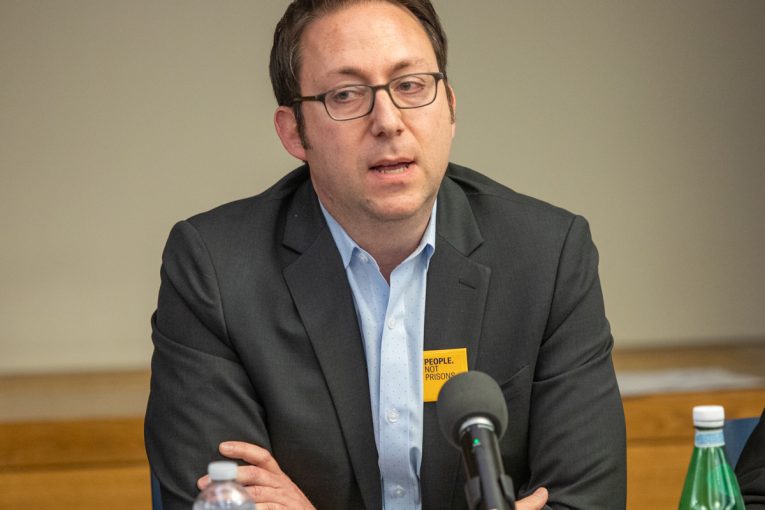

By Allison Hodge and Lois Yoo
WASHINGTON DC – Late last week, ACLU director of the Justice Division, Udi Ofer, offered a statement regarding President Joe Biden’s Plan for Strengthening America’s Commitment to Justice, which will focus on reducing crime and addressing the deep flaws of our criminal justice system.
Acknowledging and agreeing with President Biden’s new system, Ofer recognized that “we must be careful not to repeat the same mistakes of America’s failed war on crime.”
Ofer emphasized the effectiveness of implementing more community-based programs and services. Creating alternatives to police would also provide solutions for a more diverse set of issues for communities in terms of safety.
Specifically, President Biden’s plan, said the ACLU, involves “attempting to address the root causes of crime, including his proposals to invest in community-based violence intervention programs, increasing support for people leaving prisons and jails, and committing the federal government to hire more formerly incarcerated people.”
Even so, Ofer mentioned concerns over Biden’s plan, citing the historical effects of increased police presence on minority communities.
He stresses that “of the 10.3 million arrests made per year by police, only five percent of those are for serious violent crimes,” while the remaining 95 percent constitutes lower offenses  that “…unnecessarily criminalize Black communities in particular.”
that “…unnecessarily criminalize Black communities in particular.”
Biden’s plan also plays off of previous attempts at targeting low-income minority communities through drug and weapon bans.
The government, much like during the War on Drugs, “…is notorious for taking charging decisions out of local courts and into federal court, where prosecutors can seek higher sentences,” and criminalize minority groups,” said the ACLU.
Ofer explained, “We do not want to repeat the mistakes of the past that have relied on heavy-handed law enforcement and extreme sentencing.”
Circling back to the merits of the program, Ofer then conceded that the plan, “…seems to acknowledge that we cannot rely solely on arresting our way out of this problem.” Community involvement and investment are, perhaps, the most important factors in the success of Biden’s vision, he added.
President Biden has, of course, experienced the ramifications of increasing police presence and remaining “tough on crime” in the face of social protest, and has expressed regret at supporting reactionary legislation in the past, and in Ofer’s view, remains committed to securing more community investment programs.
Specifically, this will involve catering more uniquely to the needs of incarcerated women and improving the general conditions of prisons for everyone, said Ofer, adding that Biden seeks to put an end to mandatory minimums when it comes to sentencing and goes as far as to get rid of the death penalty.
In response to drug reform, Biden came out in support of the Eliminating a Quantifiably Unjust Application of the Law Act, or Equal Act, which would eliminate the disparity in drug sentencing between crack and powder cocaine.
The bill was sponsored by Senate Majority Whip Richard J. Durbin, Democratic Senator Cory Booker, and Republican Senator Rob Portman.
Furthermore, Biden said he plans to bring an end to incarcerating people for drug use charges alone.
If this is the case at a federal level, people will be sent to drug courts instead so that they can specifically address their unique situation at hand and seek treatment in the way that they need, Ofer suggested.
The ACLU noted that to accomplish this, Biden will increase funding at federal, state, and local levels so that more drug courts can be opened and supported. This also includes gradually granting clemency to those who have been long overdue for release from serving time for non-violent drug crimes.
Biden’s vocal support for this legislation lays bare the first steps in his plan to reduce gun and other related violence by, “…reducing federal spending on incarceration and reinvesting in the communities impacted by mass incarceration,” said the ACLU.
Ofer added, “Moments like these have fueled our nation’s mass incarceration crisis. This time around, we should be guided by evidence of what works, and not let the politics of fear drive our nation’s criminal justice policies.”
To sign up for our new newsletter – Everyday Injustice – https://tinyurl.com/yyultcf9






